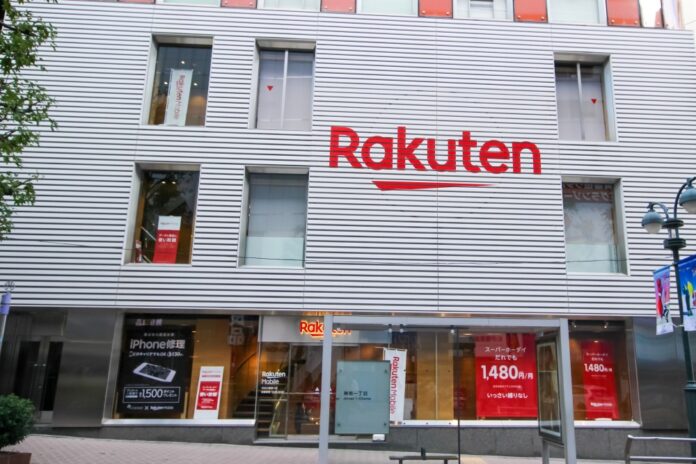
Some get ORCEX from champagne
Rakuten Mobile yesterday announced the long awaited opening of an Open RAN Customer Cxperience Centre for Europe, ORCEX, as was first reported here in November 2022. It’s claimed its Open RAN Customer Experience Centre in Weybridge, 30 minutes from London, already has vendor partners already installed on-site, weighing up their RAN options, of which there are many. The site was developed with £1.85 million (€2.1m) in funding from Japan’s Ministry of Internal Affairs and Communications (MIC). There was no direct UK government funding in response to a what Ofcom’s Lindsey Fussell, Group Director Network and Communications at Ofcom, called a vital missing piece in the nation’s telecom’s infrastructure.
While the priorities of the UK government might be open to question, the ORCEX launch was opened by Rakuten Symphony UK Nastasi Karaiskos, who runs a team of about 30 staff across the UK, and Rabih Dabboussi, chief business officer at Rakuten Symphony, who flew in from Japan for the launch. After sixth months of publicity, two UK It already has a cloud-based radio access network in place with tech from Symphony, NEC and Nokia. Symphony hopes to attract operators, integrators and vendors to use the facility, which is funded by the Japanese government. Another Rakuten facility will open later this year in Bangalore, India
The two UK government bodies involved, Digital Catapult, and regulator Ofcom, exemplified the problems that Open RANs may experience. The opening of its new Open RAN testing facilities was presented as part of its SONIC Labs (SmartRAN Open Network Interoperability Centre) programme, funded by the Department for Science, Innovation and Technology (DSIT).
At the official opening of the new facilities in Kings Cross, London, Digital Catapult delegates heard from i14Y Lab based in Germany and the National Telecommunications and Information Administration (NTIA) from the US. Digital Catapult has also welcomed nine companies to the next activity in the SONIC Labs programme, including global Open RAN vendors new to the UK market such as Taiwan based WNC and US based Airspan Networks.
For now all activity will focus on exploring the RAN Intelligence Controller (RIC), a system that controls the radio access networks (RAN) for optimised performance. Getting government bodies to work, the source of funding for ‘innovate RAN engineers, may prove terminally frustration. But human comms are the key to getting instant insights and decisions. Unlike their mechanical networker, they’ll be denied digital intelligence tools to expedite research and decision making. Engineers can use Artificial Intelligence and Machine Learning based algorithms for informed decision-making and better network performance. The four networkers are set to bring their RIC products for interoperability testing and integration, including Accelleran and IS-Wireless.
“We’re proud to be expediting the Open RAN products testing,” said Digital Catapult CTO Joe Butler, “our SONIC Labs programme is diversifying the UK telecoms supply chain market.” The programme continues to evolve and extend its activities to push the potential of the Open RAN products. The next activity will be exploration of outdoor activity and testing the performance of the indoor multi-vendor systems. Field trials in indoor and outdoor environments will give them a more realistic take on Open RAN systems and the maturity of the products. New companies joining the next SONIC Labs activity include Accelleran, Airspan Networks, Benetel, IS-Wireless, Phluido, WNC and Radisys. More vendors are joining the fold.So far, 15 vendors and 36 six Open RAN products have collaborated with SONIC Labs, signifying the largest concentration of Open RAN vendors coming together to collaborate in a commercially neutral environment in the UK.
The government’s £250 million investment in facilities like SONIC Labs is boosting competition in the telecoms market and driving the development of new mobile technology, according to Julia Lopez, the UK government’s Digital Infrastructure Minister, “These new facilities exemplify how the UK is at the forefront of telecoms innovation, supporting our diversification strategy by boosting business and growing the economy.” To put that crisis funding in context, it’s slightly less than the £2.3 million that Baroness Mone was given to provide useless PPE equipment to the NHS during a mis-spending outbreak that went viral in the UK.


